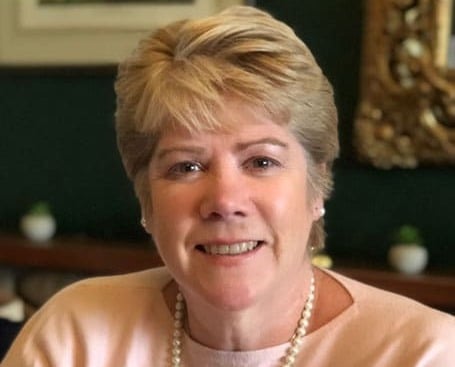DEVON County Council is looking for someone to help oversee a nearly £2 billion annual budget as a long-standing local government stalwart prepares to retire.
Angie Sinclair, who has worked in local government for 42 years at district councils in Devon and the county council, is planning to retire and will leave her role at the end of March.
And now Devon County Council is advertising for Ms Sinclair’s replacement, with the job specification being in line with salaries between £125,000 – £130,000.
It’s likely that with pension contributions, total pay would be higher.
Figures from the Taxpayers’ Alliance earlier this year showed Ms Sinclair’s total pay was £145,758 in the 2023/24 financial year.
Her role also includes being the council’s Section 151 officer, responsible for all financial matters within the county council and the Devon Pension Fund, which is valued at more than £6 billion.
The job advert states: “We’re looking for a strategic, values-driven finance leader to join us as our director of finance and public value—a pivotal role at the heart of Devon County Council’s leadership team.
“This vacancy has arisen following the planned retirement of our long-standing director, creating an exciting opportunity for a new leader to build on strong foundations and shape the next chapter of financial leadership in Devon.
“As our Section 151 Officer, you’ll provide financial stewardship, strategic insight, and innovation to help us deliver better outcomes for our communities and ensure every pound we spend delivers real public value.”
The advert also features video interviews with the council’s chief executive, Donna Manson, and the cabinet member for finance, Councillor James Buczkowski (Liberal Democrat, Cullompton) which further explain the role to prospective candidates.
The role offers flexible and hybrid working but with a “strong in-person presence” to “lead, collaborate and connect”.
The successful candidate could quickly face a challenge Ms Sinclair hasn’t experienced, notably the prospect of local government reorganisation.
This is the requirement being made by central government for councils to create fewer but larger local authorities, achieved by merging existing councils together.
At present, Devon has 11 councils in total that are a mix of unitary (Plymouth and Torbay) as well as the county council and its eight district councils, which includes Exeter City Council.
Devon’s districts and county council operate the so-called two-tier system, whereby some services are overseen by districts and others by the county council.
The government wants to abolish this system in favour of unitary councils, which perform all services within their administrative boundary.
The Government says redistributing political, social and economic power ‘will rewire England and allow everyone everywhere to realise their full potential’.
It plans to develop strategic authorities across England, with councils working together under these, to deliver improvements to things like transport networks, skills and employment support, housing and the environment.
The new finance director will likely be heavily involved in helping the county council merge with some of Devon’s other local authorities.





Comments
This article has no comments yet. Be the first to leave a comment.